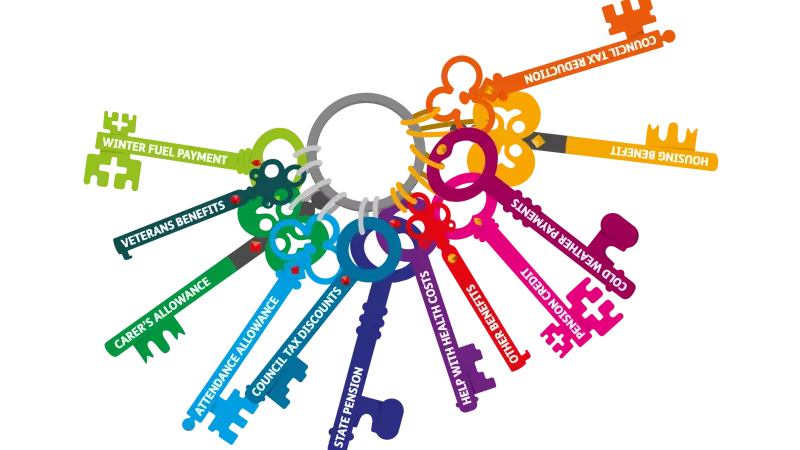Analysis: Loss of free to use cash machines impacts older people
This article was originally published in the Herald Newspaper on 18th September 2019
You can read it on the Herald Scotland website here
Age Scotland's Head of Policy and Communications, Adam Stachura writes about how access to cash and personal banking must adapt and become more age-friendly.
You may wonder what all the fuss is about when it comes to a cashless society. Perhaps your purse or wallet only holds a handful of cards and some receipts. Maybe an emergency tenner lurks within.
But imagine how you would feel being charged 20% to access that same ten pound note. If you are anything like me then you might be pretty angry. Sadly, that is the reality for many older people across Scotland on low and fixed incomes whose only convenient option for withdrawing cash is from a fee charging machine. This is all too common in areas of deprivation and rural Scotland. For some it is the difference between eating for 4 days or 5.
The pace of banking change in Scotland and across the UK has been staggering with a concerted push towards digital, cashless and app based personal finances. The result has meant that, on large, the trend has been away from cash as those who are willing, able and technically savvy embrace this.
But for the 170,000 pensioners in Scotland living in poverty, the many thousands more just above this threshold, the half million over 60s who do not use the internet, those with disabilities or have a cognitive impairment it is not that easy.
If you are over the age of 75, you are much more likely to be targeted for scams, so it’s important that the option for a face-to-face conversation about their finances is available. Indeed, banks should be future proofing their facilities such as branches and cash machines ensuring they’re age and dementia friendly in order to not alienate our ageing population.
There are significant parts of Scotland where cash is king. Not least in the rural economy where the only option for people to withdraw cash is through a fee charging cash machine. There have also been well documented examples of free cash machines in the Highlands, where it is the last machine in town, running dry during the peak tourist season.
Poor mobility and a lack of public transport can make it even harder for older people. Many are left with no choice but to pay extortionate fees of up to £2.99 for pay-to-use cash machines. This will have the biggest impact on those who can least afford it and don’t have the option of driving to the nearest free machine.
With the equivalent of 35 free to use cash machines disappearing from Scottish communities each month it can feel that we are being bounced into accepting the switch away from cash.
But it is not just cash machine access which is vanishing. Bank branches have been closing at alarming rate throughout Scotland despite repeated complaints from customers, politicians, and organisations such as Age Scotland.
For context, we’re talking about nearly 10,000 branches being closed across the UK over the last 25 years. In Scotland, there are now a third fewer bank branches in our communities than there were in 2010. A caller to Age Scotland’s freephone helpline, which provides information, friendship, and advice, told us that after forgetting her account password, a telephone advisor told her she would have to “pop in” to her nearest branch. The only problem was that she lived in rural Perthshire and the closest one involved a journey of almost two hours on two different buses!
Bank closures coupled with the removal of free to use cash machines will see older people’s choice severely limited as to how they choose to manage their finances. We know that many older people, particularly those on low and fixed incomes prefer to use cash as a means of effective budgeting. Restricting their ability to access cash, not to mention free access, is having a negative impact on their day to day lives.
There are towns in Scotland where there are no banks whatsoever. Lochgelly in Fife is one. Dornoch in the Highlands another. It is likely that this will keep happening, creating banking deserts unless action is taken.
This is why, just last month, Age Scotland joined calls from the House of Commons’ Scottish Affairs Committee and others to seek a commitment from banks that they will not close the last bank in town. If that is not forthcoming then the option of legislation to stop them doing so could become a very real prospect.
One solution to prevent these banking deserts could very well be an idea Age Scotland, and some politicians, have been promoting. Joint bank branches, or a shared banking hub, would see banks sharing a physical space to keep a high street or community presence. This would mean that people can interact with staff face-to-face, discuss their banking needs and find out more about improving their financial health.
The idea of Shared Banking Hubs in smaller communities where there is less footfall is gaining support from older people and politicians. Most recently the UK Parliament’s Treasury Committee recommended that shared Bank Branch facilities should be considered in their inquiry on Consumers’ access to financial services.
We have also had discussions with one bank who are interested in the idea, but it still requires others to join in and trial this.
We are not against the proliferation of convenient digital banking options. It works brilliantly for many older people who have access to technology and choose to do so, but we cannot just brush aside the needs of those it does not suit.
It’s not progress when the poorest and most vulnerable are left behind, which is exactly what is happening and why organisations like Age Scotland will campaign relentlessly to ensure that no one is financially excluded.


